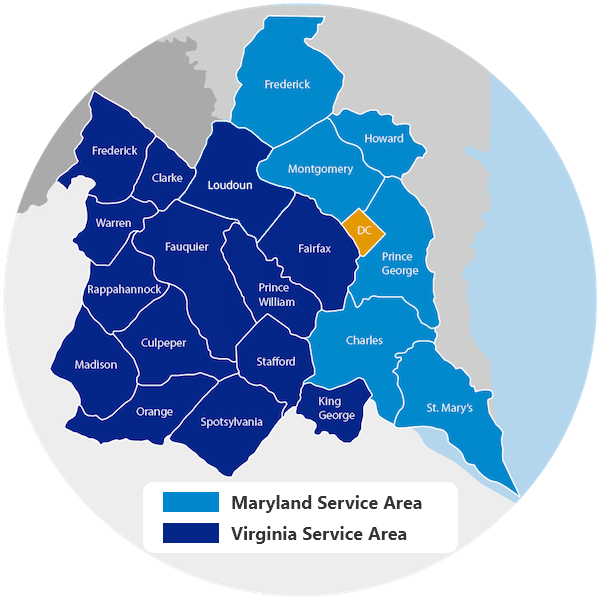Mold: Just the sound of it is enough to make any homeowner cringe. It's unsightly, hard to get rid of, and can cause serious health problems after prolonged exposure. You don't want to find mold anywhere in your home, of course, but one of the first places you should thoroughly inspect for signs of mold is your basement.
Mold needs moisture and oxygen in order to grow. Summer is quickly approaching, and summer can be a very wet season. Heavy rain, thunderstorms, and even hurricanes can be common in summer, especially in Montgomery County. If you don't have a waterproofed basement, extra water can find its way into your basement, leaving plenty of opportunity for mold to grow.
Finding mold anywhere in your home is bad, but your basement is arguably the worst place to have mold grow. Here are a few reasons why mold in your basement can be a particularly nasty problem:
Basements have a lot of potential for mold growth.
Unfinished basements in particular are pretty susceptible to mold growth. Some households use their unfinished basement for laundry and/or storage, with nothing else but concrete floors, the home's foundation, and wall studs furnishing the space. If your home's foundation has cracks and leaks, this leaves plenty of potential for mold to grow in the moisture.
Basement mold is more likely to go unnoticed
Mold may be especially hard to detect in finished basements, since mold can grow behind drywall or under flooring where you might not see it until it spreads and serious damage has been done. Mold can grow in difficult-to-find places in unfinished basements as well, like in corners and around leaky pipes. Even if it doesn't look like anything's wrong, hidden mold will continue to grow and spread, causing damage and putting your family's health at risk.
Mold won't stay in the basement
If you do find mold in your basement, you may breathe a sigh of relief and think, âgood, I only have to worry about the basement.â Unfortunately, dismissing the seriousness of basement mold like this can be a big mistake. Just like warm air rises, so too will mold spores. They'll spread to the upper levels of your home where you and your family will be more susceptible to breathing them in. The spores may even take root and grow in damp spaces upstairs, like under your kitchen sink or on your shower tile.
How to Find Mold
Understanding the danger of mold in your basement and knowing how to find it are two separate things. You should inspect your basement for mold often, especially after heavy rain. The most noticeable feature of mold is its appearance. Mold often appears as grey, black, or blue fuzzy spots creeping across your walls. However, as mentioned, it can be hard to locate and identify mold in your basement, or to even know that you have it in the first place.
There are other warning signs that you have mold. If your basement has a musty or damp smell, this is a sure sign that extra water has made it into your basement and there's a good chance mold will grow. Mold isn't good to breathe in, and if you've noticed you or your family showing the following symptoms without explanation, you most likely have mold growing somewhere in your home:
- Sore throat
- Difficulty breathing
- Coughing
- Body aches and pain
- Eye and skin irritation
Trust NV Waterproofing to Get Rid of Your Basement Mold!
NV Waterproofing is proud to serve Northern Virginia, DC, and Maryland with mold and mildew solutions. We know how to identify mold and eradicate most if not all of the mold in your basement. For more extreme cases, we can refer you to a mold remediation company if necessary.
Get rid of the mold in your Montgomery County basement before too much damage can be done. Call NV Waterproofing today at 1-703-690-3889!



